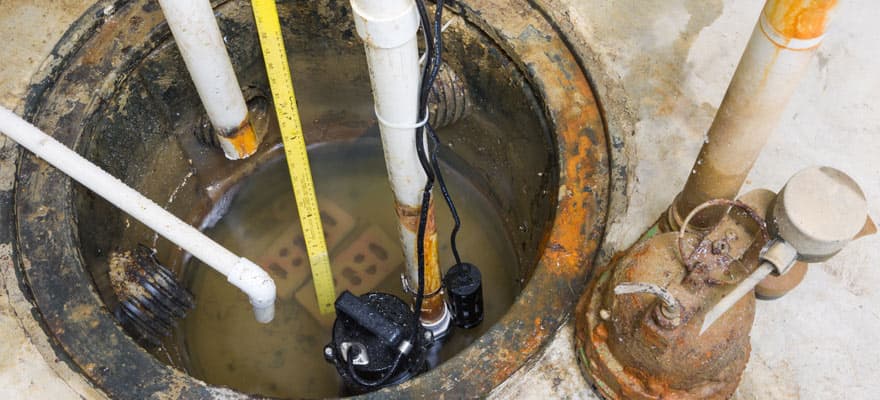Comprehending the Trick Parts of Effective Water Filtration Equipments

Value of Water Filtering Solution
Water purification systems play a crucial duty in making sure access to clean and safe alcohol consumption water by efficiently removing contaminants and contaminations. These systems are necessary in resolving the growing concerns over water quality and the prospective wellness dangers related to taking in contaminated water. By utilizing different filtration devices such as reverse osmosis, triggered carbon, and UV sterilization, water purification systems can efficiently eliminate hazardous materials like bacteria, viruses, heavy metals, and chemicals from the water.
Moreover, water filtration systems help to boost the preference and smell of water by removing chlorine, debris, and various other pollutants that can influence its top quality. Water Treatment. This enhancement in water quality not only makes it more palatable however also encourages individuals to drink a sufficient quantity of water daily, promoting far better hydration and overall health and wellness
Kinds of Purification Parts

Physical filters are designed to literally stress out impurities from the water. These filters can be constructed from materials like ceramic, carbon, and even sand, and they work by trapping bits larger than the filter's pores as water travels through.
Chemical filters use various chemical procedures to get rid of contaminants from the water. Examples consist of triggered carbon filters, which adsorb impurities, and turn around osmosis membranes, which make use of pressure to separate pollutants from the water.
Biological filters utilize living microorganisms like germs or algae to break down organic issue and toxins in the water. These filters are often made use of in wastewater treatment plants or natural water filtration systems.
Recognizing the various kinds of filtration components is important for selecting the most ideal water purification system for specific filtration demands.
Function of Debris Filters
Debris filters play a critical duty in water purification systems by effectively catching solid bits suspended in the water. These filters are usually the first line of protection in a filtration system, getting rid of larger fragments such as sand, silt, dirt, and rust prior to the water relocates with finer filtering stages. By trapping look here these sediments, the filters prevent them from getting to downstream elements, thus expanding the life expectancy and effectiveness of the entire system.
Overlooking this maintenance can lead to clogging, lowered water flow, and compromised filtering effectiveness. Overall, sediment filters are vital components that contribute dramatically to the performance of water filtering systems.
Duty of Triggered Carbon Filters
Playing an essential function in water filtering systems, turned on carbon filters are critical in removing impurities and impurities from the water. These filters are made to adsorb and catch a vast array of pollutants, including chlorine, volatile natural compounds (VOCs), pesticides, and herbicides. The turned on carbon material has a large area, permitting the reliable capturing of pollutants with a process called adsorption. As water travels through the filter, the triggered carbon attracts and holds onto the pollutants, ensuring that the water that appears beyond is cleaner and much see this page safer for usage.
Turned on carbon filters are extremely reliable at improving the preference and odor of water by minimizing chemicals that can impact its high quality. They are also qualified of getting rid of specific heavy metals like lead and mercury. Furthermore, these filters can aid prevent the accumulation of germs and algae in water, further enhancing its general quality. As a result of their adaptability and integrity, triggered carbon filters are an essential part in guaranteeing that water is cleansed to the greatest requirements before reaching consumers.
Comprehending Reverse Osmosis Systems
Reverse osmosis systems are sophisticated water filtering systems that employ an innovative procedure to remove impurities and contaminations from alcohol consumption water. These systems work by using stress to the water, forcing it with a semi-permeable membrane layer. This membrane layer acts as a barrier, allowing just distilled water molecules to pass through, while obstructing bigger molecules such as minerals, chemicals, and various other contaminations. Therefore, the water that appears on the various other side is dramatically cleaner and safer for consumption.
One key benefit of reverse osmosis systems is their capacity to get rid of a wide variety of impurities, including hefty metals, dissolved bacteria, viruses, and solids. This makes them very reliable in boosting the total quality and security of alcohol consumption water. Furthermore, reverse osmosis systems are relatively low-maintenance and can be mounted under the sink or in a main filtration system, giving practical access to clean water throughout the house. In general, recognizing how reverse osmosis systems work can aid people make informed choices concerning their water purification needs.
Verdict
In final thought, reliable water filtering systems are useful reference crucial for making sure tidy and safe drinking water. The vital elements of these systems consist of sediment filters, turned on carbon filters, and reverse osmosis systems. By recognizing the feature and duty of each part, individuals can make enlightened choices when choosing a water filtering system. It is essential to prioritize the top quality of water in order to promote total wellness and wellness.
Water purification systems play an important function in making certain access to secure and clean drinking water by effectively eliminating pollutants and pollutants. By making use of different filtering mechanisms such as reverse osmosis, turned on carbon, and UV sanitation, water filtering systems can effectively remove damaging substances like microorganisms, viruses, hefty metals, and chemicals from the water supply.
Sediment filters play an important role in water filtration systems by properly capturing strong bits put on hold in the water (Well Pump Replacement).Playing a crucial duty in water filtration systems, turned on carbon filters are crucial in eliminating pollutants and contaminants from the water supply.Reverse osmosis systems are innovative water purification systems that use a sophisticated process to remove impurities and impurities from alcohol consumption water